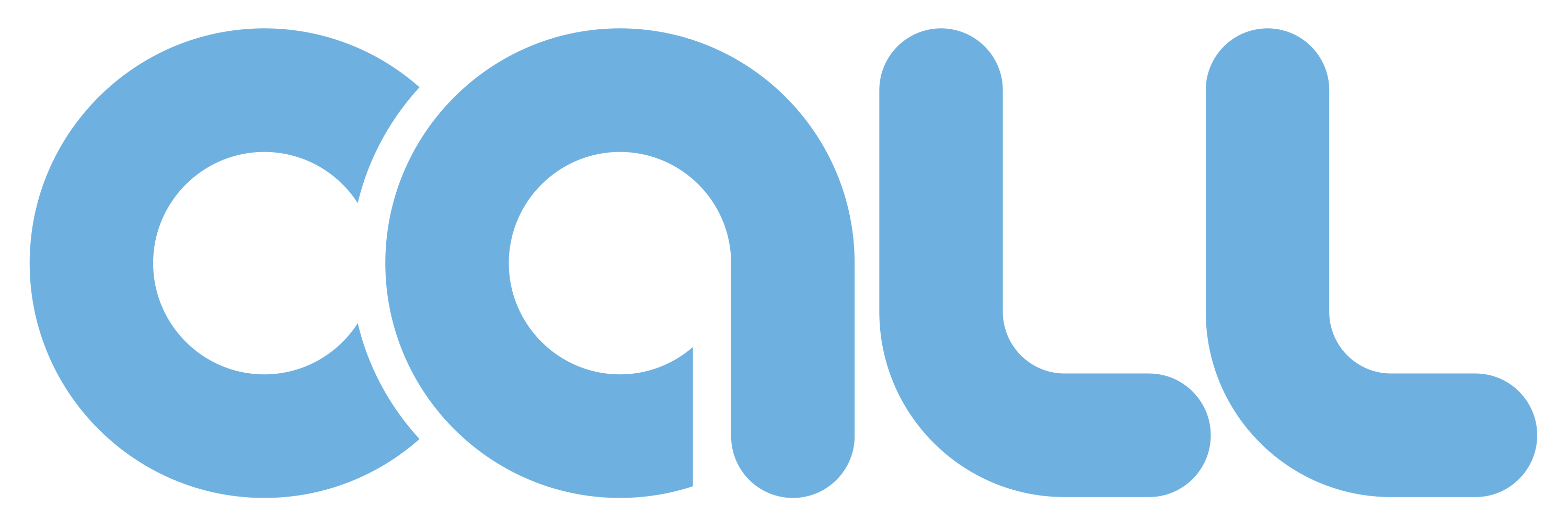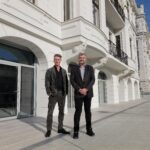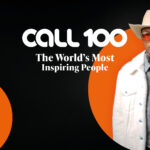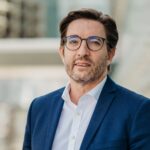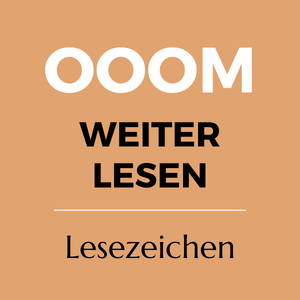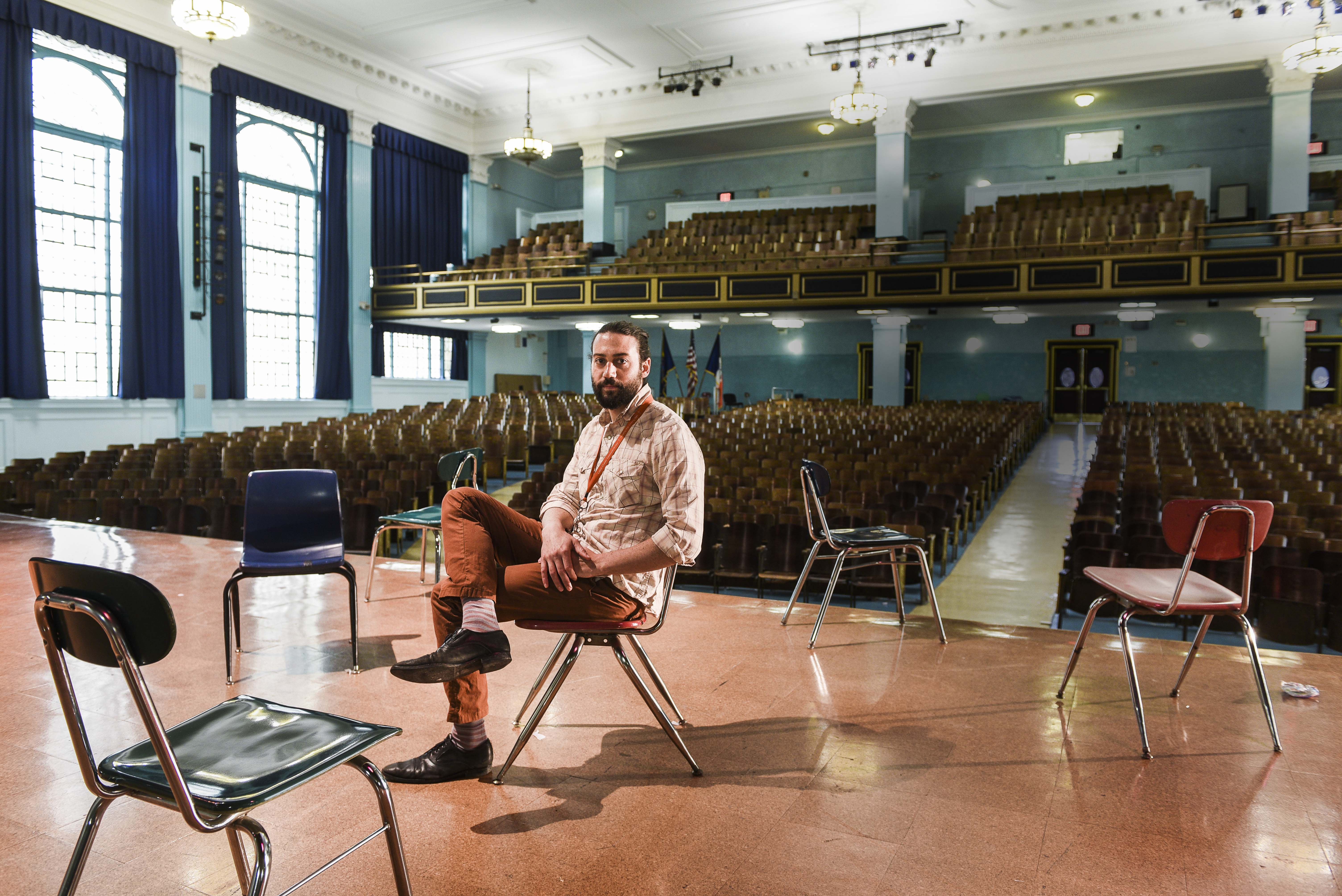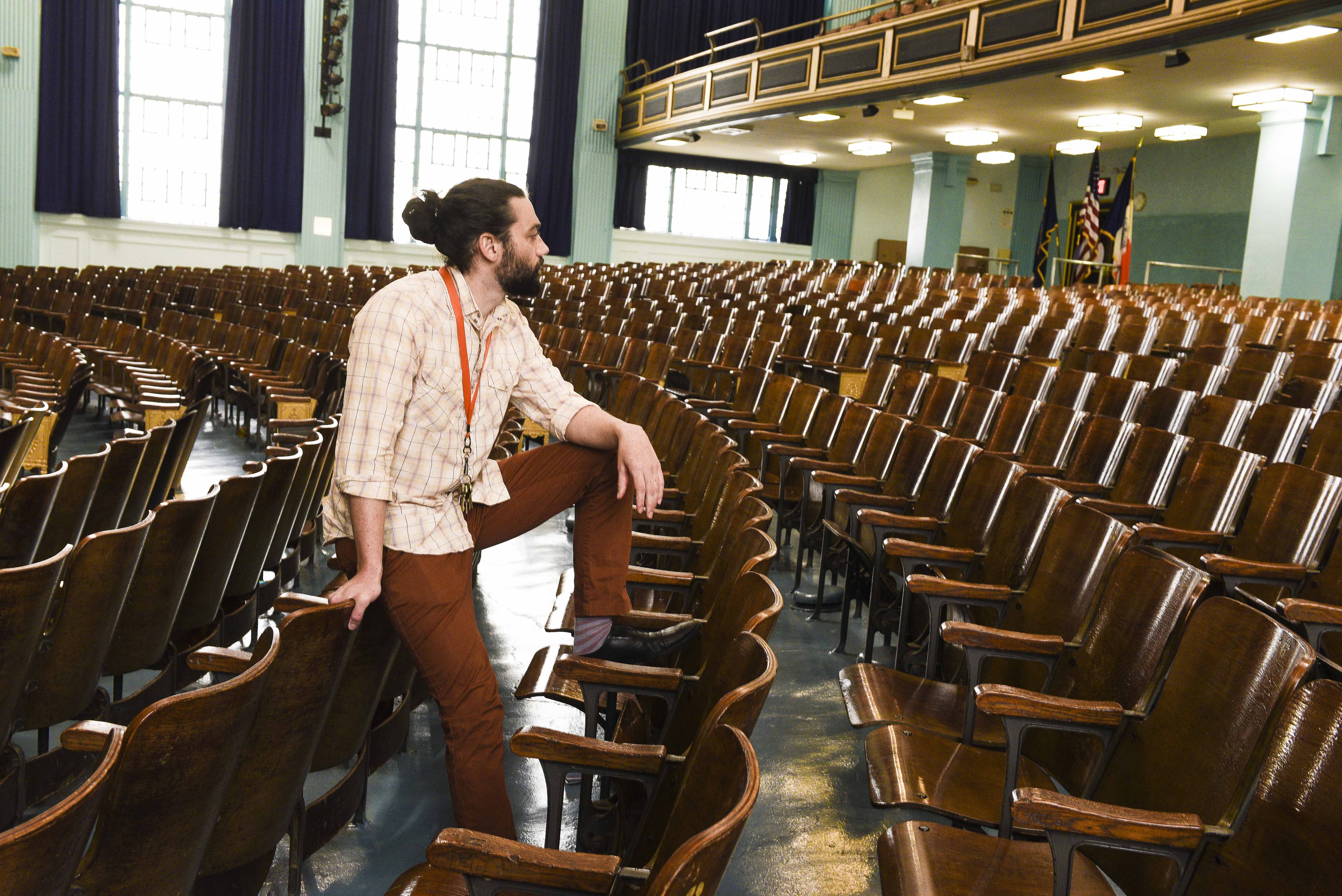
They have everything to do well, they just don’t necessarily know how to use it at the moment. The kids that really succeed are the ones that pick up the phone, call anybody and say: “Can I join your program? Can I do this or that?” But a lot of kids just don’t know how to do this. A lot of our work is developing that. But again, that doesn’t happen overnight. There is no workshop where you can teach that. Maybe it takes holding their hands and taking them to places. We have a lot of kids running 192nd street, it’s a big deal to go to Times Square. It’s a 20-minute ride on the subway, it’s very close physically, but it’s a world apart in reality. Exposing students to different environments and telling them: “You can play over here if you want to!”—this is not something that you do easily. We don’t step outside of our comfort zones very easily. It takes a great deal of work to create that environment where that can occur.
70% of our students are Latinos, 20% African-Americans. For them, the trip from 192th street to Times Square is a journey into a different world.
What backgrounds do your students have?
The majority of our students are Latino students and largely from the Dominican Republic. Roughly 70% are Latino, probably 20% African-American. African-American like ‘black’, which could mean African descent or maybe American or Caribbean or West African, we have many students whose parents were first-generation coming from West Africa.
How much of a problem are drugs and criminality in your school?
I grew up in a small town in Maine, which was not per se a wealthy area, it was middle-class to lower middle-class, all white. Drugs were more of a problem there than they are here. Gun violence is, amongst our students, not so much a problem, but in their neighborhoods, it’s a problem.
Do many of your students live in dangerous areas?
That’s a good question. I also live in the area. From my perspective, if you get involved with the wrong crowd, then yes. If you stay out of that crowd, you’re okay. Now it’s a matter [of]: How do I stay out of it? We have many students that are not too far from that life, from a gang or whatever. And it’s not really by choice largely, it’s by circumstance. Because their brothers or fathers are in it too, and they follow their footsteps. To stay out of it is often easier said than done.
How many teachers are working in all 4 schools on your compound?
In this school we have about 45 teachers, I believe that on the whole we have almost 200 teachers working here.
How does a typical day in the life of a student look here at your school?
School starts at 8 in the morning. It’s a long day, it goes till 3:40; some students have another period that goes till 4:30. We have lunch in the middle of the day. There is a big focus on academics, because we are behind in academic metrics. All of our students have two English classes and two math classes, two Sciences. There is a lot of pressure to pass the standardized test that you need to graduate from high school. So, it’s a tough day. There isn’t a lot of time to be kids.
What can you and your colleagues do to improve the overall situation in your school?
Doing this work every day, you get pretty hammered down. It’s hard work. These issues that we are facing are not localized, they are not just here in this school. Really, if you talk about how does our school do better—we are talking the same about all the schools in low income neighborhoods in our country. I’ll take a step back and tell you my story a little bit. I went to high school in Maine, I went to college in Pennsylvania, I studied mechanical engineering, I did two internships in college and I didn’t love them. So, I wasn’t thrilled to go work as a mechanical engineer. When I was writing my resumé as a senior in high school, I was embarrassed because I had very few volunteer hours. I said, “That’s pathetic.” I said I wanted to do something where I can feel at least a bit better about myself, and then I can move on and be an engineer or whatever. So I turned down a few job offers as a mechanical engineer, and my sister told me about a program that was called “City Year,” which was part of AmeriCorps. It was started at the Clinton time. It’s kind of synonymous to the Peace Corps, but it’s domestic. I signed up and got accepted for that program, I didn’t really know what I would be doing, I just knew that I was going to work in schools. NYC was close to my school and many of my friends were here and my grandparents lived near, so I said I’d move to NYC. I thought I was going to do that for one year, likely, and then go on to be an engineer.
Was George Washington High School the first school you were assigned to?
When I started, I was put in a high school in Harlem, on 128th street. I worked there in supportive services and for me, it was an eye-opening experience. I didn’t know until then about the inequality in this country. Which is crazy. I was a relatively decently educated 23-year-old and I didn’t know that things weren’t fair in this country. I have lived, as I since learned, in a meritocracy–I got what I put into. And I thought life worked like that. I thought that if you worked hard here, you would achieve here. If I work hard in the court, I spend a lot of time on the basketball court. If I spend a lot of time reading the books, I would achieve As and progress in that way. That was my reality, but this is a huge privilege to live like that. So being with those kids in Harlem, tutoring them in math or whatever, I often felt: “My God, you are naturally smarter than me. Why is it that I am, statistically speaking, succeeding and your chances are less than mine?” To me, that was eye-opening and also devastating, and it changed my life. Because it allowed me to start conversing with people and talking to people, and they said: “Of course, it’s unequal, you didn’t know that?” and I said: “No.” The last 10 years of my life have been an inquiry into that inequality in this country. And what do we do to make it more equal and fair?
What do you believe in?
I truly believe in education. If you look at all the different places we could create a more just system, I always end up back at education. Because we all start at a different place. If we run a race, and I start at yard 10 and you at yard 0, of course I am going to beat you! In a social context, this is how we live here in the US. These are based on very superficial elements of who we are. This is skin color, the socio-economical doing of our family, etc.–not important stuff at the end of the day on what we are basing where we start off in life on. I don’t look at it as a responsibility, I am not critical of my peers, I look at it like an opportunity. An opportunity to create a better world.
Concretely, how are you going about trying to realize that goal?
I think that as a white person in America, I have the opportunity and the platform to talk to people that come from my background, my social class or education, to talk about the different problems of inequality here. So, when asked: How do we make this school ultimately succeed? It has to do with creating a more just society. It has to do with people knowing their neighbors and knowing what other people are going through. It has to do with us being more empathetic with each other and not being afraid of different people. My life is so much richer than I can imagine it would have been if I went into a more traditional field and lived a more traditional middle-class life. I feel so honored that I am allowed to be here. It feels so important. I don’t want to be looked at like a savior or as a special person. I don’t think I’m not special, but I don’t think I’m special. I am given the opportunity to come to this beautiful school every single day and get to know people who come from a different place than me. It is so enriching to my life; I have grown in so many ways. My education is being in this school and learning every day. I learned math and reading and writing someplace else, but my education is coming to work and being part of this every single day. I love the AmeriCorps program that I did, because it brings a lot of people from different places into environments that are new to them. And how do we truly solve our education problem or any inequality in America? I think that we need people from different races, from different socio-economic levels going into new environments. Rich kids need to be working in poor neighborhoods, learning about each other. Once you learn about each other, there are no problems.
Many people living in New York work two or three jobs and still find they are not earning enough to get by.
In NY, we have a $15/hr minimum wage; that’s good. No matter what job you have, you get $15/hr. But ultimately, that’s not enough money to put food on the table and raise your family. So, if you work a $15/hr job, you will always be poor. How can we educate our children so they get jobs, where they can afford a life that gives them comfort? The other thing—as an educator, I really try to stress this but it’s very, very difficult, is that money isn’t everything. How could you not believe that? If you come from never having enough money in your life, and you take a walk down the street, everything tells you, you need money! Cell phones, shoes, pants, you need money to do things. As an educator, I really try to push that yes, you need money, but that doesn’t make you what you are. Yes, the world is a changing place, but we as educators can make sure that we develop wholesome children who know how to relate to people. Relationships are still the most important thing. We try to bring that in. We have app designing classes, we have computer coding classes. There are opportunities. The kids just need to take them.
